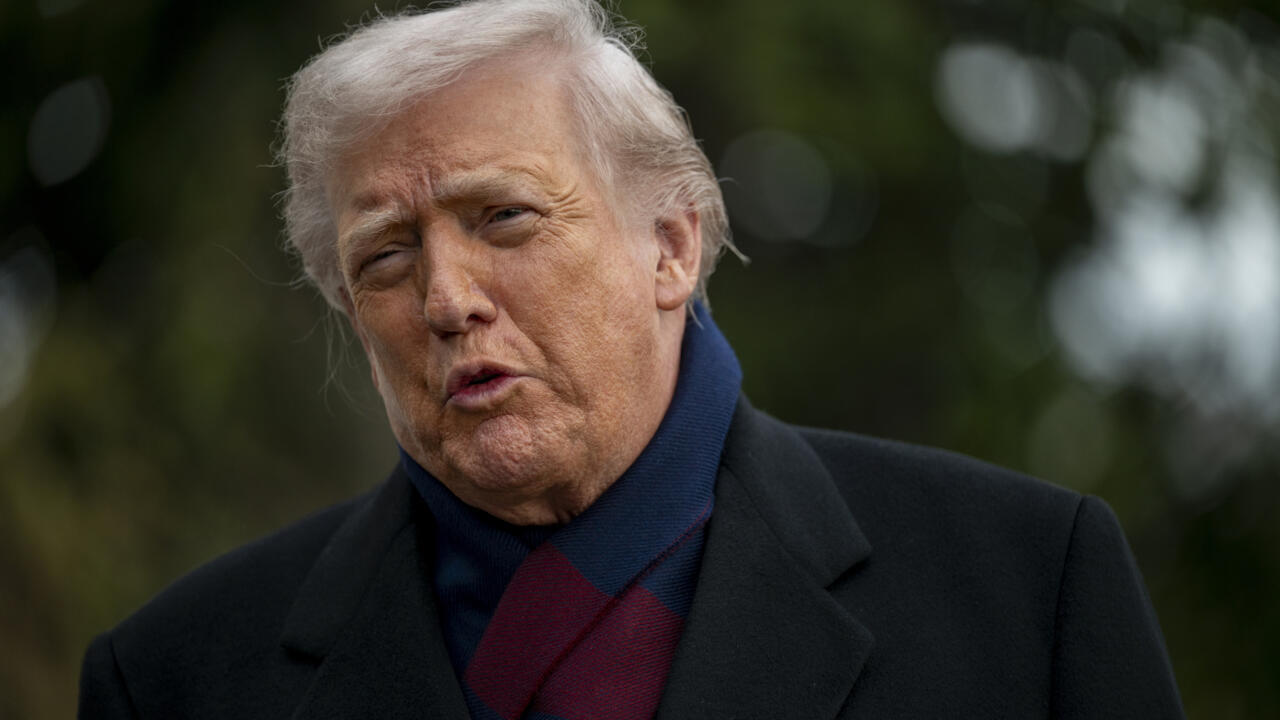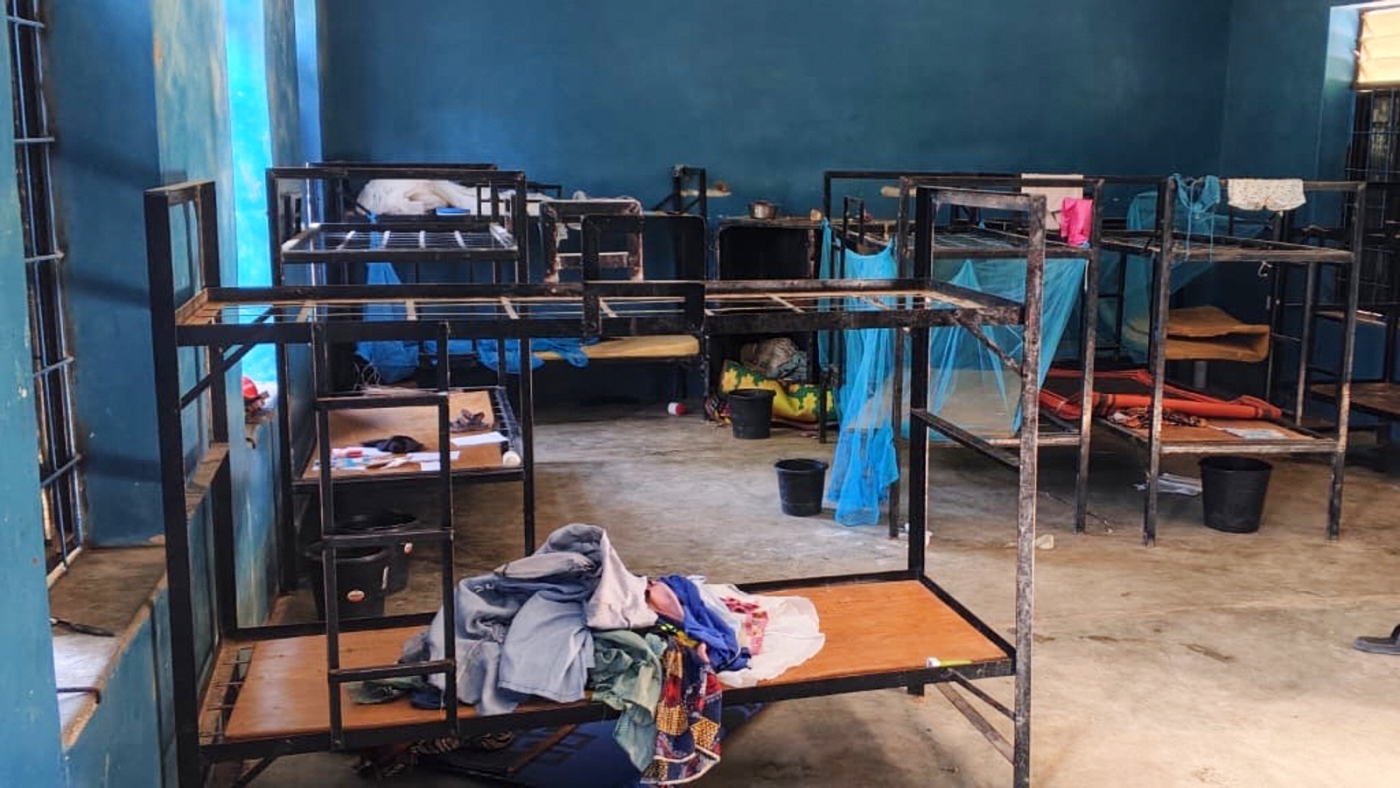President Alassane Ouattara has spent the past 14 years as leader of Ivory Coast and on Monday reconfirmed his grip on power, winning a fourth term with 89 percent of the vote.
Prior to polls opening, several leading opposition figures were excluded from the vote, making victory a foregone conclusion for the leader of the presidential party, the Rally of Houphouëtists for Democracy and Peace (RHDP).
High profile opponents, including former president Laurent Gbagbo and businessman and politician Tidjane Thiam, have accused the 83-year-old of stifling democracy in the West African country by eliminating his political rivals.
Read moreAlassane Ouattara wins Ivory Coast presidential election, according to provisional results
International business, national politics
Born in 1942 in the central town of Dimbokro, Ouattara belongs to the Malinke ethnic group, which is predominantly Muslim. He completed a large portion of his studies in the Republic of Upper Volta (now Burkina Faso) and also gained a doctorate in economics while studying in Pennsylvania in the United States.
After his studies, Ouattara began a high-flying international career. He first worked as an economist at the International Monetary Fund in the 1970s before becoming the organisation’s deputy managing director in the 1990s after a stint as the head of the Central Bank of West African States (BCEAO).
When the Ivory Coast faced a financial crisis in 1990, Ouattara was called back to the country to become its prime minister by then-president Félix Houphouët-Boigny, the country’s first leader after it gained independence from France.
At the time, Ouattara’s technocratic style contrasted sharply with Ivory Coast’s political class and he quickly gained a reputation as an outsider.
'Ivoirité' and civil war
After the death of Houphouët-Boigny in 1993, a political crisis plunged the country into instability.
Ouattara found his Ivorian nationality contested by proponents of “ivoirité” – a xenophobic ideology aiming to exclude political candidates judged to be “non-Ivorian” from running for election.
His run for the presidency in 2000 was invalidated on the grounds of his “questionable nationality” as opponents claimed Ouattara had genealogical links to Burkina Faso that ruled him out of running for office.
As policies based on “ivoirité” ratcheted up tensions between various ethnic groups, Ouattara’s exclusion from politics fuelled polarisation and contributed to the outbreak of the country’s first civil war.
Two years later, in 2002, a rebellion led largely by Ouattara’s supporters resulted in the country being divided in half for years to come, with the rebels holding the north and the south controlled by then-president Gbagbo.
The political crisis reached its apex after the 2010 presidential election in which Ouattara was authorised to participate and won, according to the electoral commission.
The Constitutional Council then invalidated a portion of the votes and announced that Gbagbo had won the election, sparking outcry from the UN and the international community.
The country was plunged into a spate of post-election violence that caused more than 3,000 deaths.
A military intervention led by the UN and pro-Ouattara forces and supported by France resulted in Gbagbo’s arrest in April 2011.
Economic growth and inequality
Once installed as president, Ouattara set about enacting profound economic change. Under his leadership, Ivory Coast became a champion of African growth with rates approaching or exceeding 7 percent year on year.
The country invested massively in infrastructure, including roads, bridges, rural electricity, ports and stadiums. It also became the top global producer of cacao.
Read moreIvory Coast: In Abidjan’s bustling neighbourhood of Abobo, ‘it’s Alassane or nothing’
As the same time, inequality increased, health and education remained underfunded and corruption persisted.
Public debt, which has grown continually, is today approaching 60 percent of the country’s GDP, a rate Ouattara’s opponents said is excessive despite it being below alert thresholds.
A major regional player
Internationally, Ouattara has maintained his reputation as a respected technocrat and regional mediator, particularly within the Economic Community of West African States (ECOWAS).
In 2024, Ivory Coast hosted the Africa Cup of Nations and the competition – which was won by the Ivorian national team, nicknamed ‘the Elephants’ – was considered a diplomatic and logistical success that reinforced the country’s reputation on the international stage.
But national stability remains fragile. The Sahel region is beset by jihadist violence and Ivory Coast must coexist with hostile military regimes in the north, particularly in Burkina Faso.
For now, the country has managed to stem terrorist incursions thanks to its proactive security policy.
Consolidation of power
Despite a return to relative peace, domestic politics in Ivory Coast is marked by a concentration of power in the hands of the president.
Protests are rarely authorised and legal proceedings against opposition figures seem to signal an increasingly authoritarian regime.
In 2021, after nearly 10 years in detention on four counts of crimes against humanity, Gbagbo, who was definitively acquitted by the International Criminal Court, was allowed to return to Ivory Coast. In a gesture of political reconciliation, he was pardoned by Ouattara shortly after.
However, the former president is still barred from running in presidential elections, obstructing one of Ouattara’s only viable opponents.
“If we prevent others from fighting for power, it is no longer a democracy,” Gbagbo said of the current state of politics in his homeland.
Succession
Ouattara was re-elected in 2015 with 83 percent of the vote and in 2020 with more than 94 percent, thanks to a contested revision to the national constitution which allowed him to run for a third term.
Violence sparked by anger over the 2020 vote caused 85 deaths.
The vote over last weekend was largely peaceful, which Ouattara’s opponents have attributed to low turnout in urban areas. Overall voter turnout reached just 50.1 percent, according to the electoral commission.
Read moreIvory Coast: In Abidjan’s Yopougon district, residents want ‘peace’ above all else
Prior to the 2020 election Ouattara had announced his intention to step down, but then changed his mind after the sudden death of Amadou Gon Coulibaly, his chosen successor.
“This is not a term that I wished to serve, I am doing it out of a citizen’s obligation,” he told FRANCE 24. “It will allow us to form a new team that can take the reins as soon as possible.”
He later said he had identified “half a dozen potential successors”, but has shown little indication of any real transfer of power.
Prior to his most recent presidential run, Ouattara said in July: “I am a candidate because the constitution of our country authorises me to serve another term and my health allows it.”
Evoking “unprecedented” security and economic challenges, he promised that his new term would be “one of generational transition”.
This article was adapted from the orignal in French by Joanna York.











 English (US) ·
English (US) ·